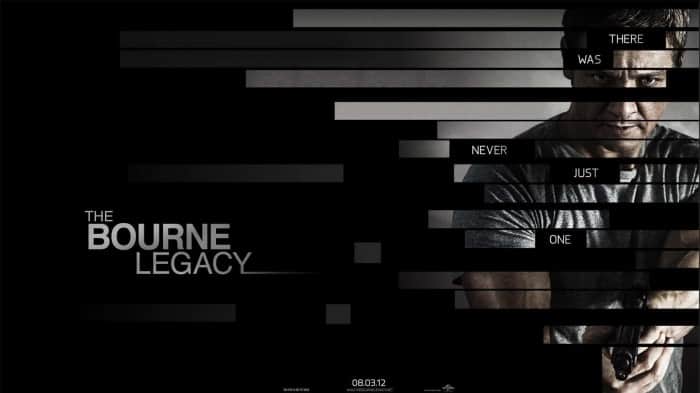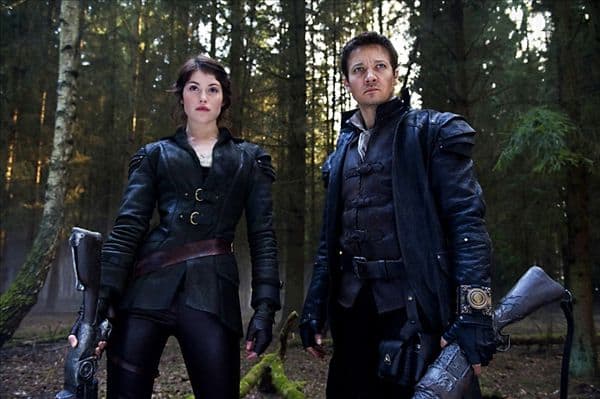
Movie Review: ‘THE BOURNE LEGACY’
Regardless of what the title may lead you to believe, this new entry in the Jason Bourne saga is in fact missing the title character from its roster. His name is mentioned quite a lot even though the action is now left up to Jeremy Renner to take over. After three successful action films that also managed to include some intellectual depth, franchise screenwriter Tony Gilroy has stepped up to the plate to introduce a whole new action hero to fill the void of the missing in action Matt Damon in The Bourne Legacy.
Aaron Cross (Jeremy Renner) is on the run from the CIA as they are trying to keep a lid on the illegal government programs – Black Brier and Treadstone – that were first exposed by Jason Bourne. On his run from assassins led by Eric Byer (Edward Norton), he discovers that the daily dosage of medicine (CHEMS) he has to take to function properly is quickly dwindling. Cross soon finds Dr. Marta Shearing (Rachel Weisz) who also happens to be hunted down by the same agents that are trying to exterminate everyone involved in the experiment once and for all.
In a lot of ways, Jason Bourne and the films that were based on the Robert Ludlum novels, can be seen as a 21st century James Bond. While Bond may have the polished appearance and skills to disarm an enemy – not to mention the prowess to disrobe the females- Bourne brings more of the physical and intense violence that seems more relevant to our times. Bourne is a failed project of his government with which he now loathes and resents while Bond is faithfully serving his own country. Though the two couldn’t be further apart from one another, it’s not a stretch to see some resemblances. The first film directed by Doug Liman, was a well-made chase film that included elements of a Bond film but was elevated by Matt Damon and Franka Potente’s performances. Somewhere between the middle of the second film and the end of the third film, the series started to take a turn towards more of a political thriller. Aggressive hand-to-hand combat and meticulously choreographed chase sequences still invigorated the films but a more focused attention was now paid to the organization that was pulling the strings. We were now discovering Jason Bourne’s origins and the mystery behind such government programs like Treadstone while our hero was as well. With The Bourne Legacy, the cat is out of the bag. The government cover-up and the players behind it have all been revealed and so the sense of intrigue has been lifted. Screenwriters Tony and Dan Gilroy try to make up for this by introducing Edward Norton as a colonel turned evil government organizer but fail to give us anything new. Norton’s phoned in performance sadly pales in comparison to previous baddies Joan Allen and David Strathairn; so, we are left with a weak developed villain whose screen-time actually rivals that of the main character Aaron Cross.
Jeremy Renner certainly performs the physical stunts necessary for the role of the rogue agent Aaron Cross. It’s no fault of his performance though that you may long for the emotional and sullen character of Jason Bourne instead. To differentiate our new hero from the franchise name, some amusing sequences are thrown in between Renner and Weisz that inject some humor into the dry film. One still feels though that a larger departure from the white, male, muscular, handsome, bad-ass could have made for a far more interesting film. What makes this all the more frustrating is that the film actually incorporates a story element where the audience gets to see other agents that were a part of Treadstone! All hopes of seeing these other agents – one of which is an Asian female while the other is an African-American man – is quickly squandered in one of the dumbest moves the studio could have done that completely wrecks the potential of further sequels outside of Matt Damon.
The most frustrating aspect of this unnecessary sequel is its attempt to exist as a pseudo-intellectual thriller. The Bourne Legacy tries to take itself too seriously and strive for the heights of other great political thrillers like All The President’s Men, The Manchurian Candidate, and even its director Tony Gilroy’s minor masterpiece Michael Clayton. Outside of some captivating camerawork at times, this sequel brings nothing new to the table. Even compared to the previous sequels, this one’s main two action set-pieces seem unexciting and even dull. A surprisingly graphic and surreal medical lab shooting that takes place around the fifty minute mark is really the only thing that kept me awake during the two hour and fifteen minute running time (the longest in the entire series). The Bourne Legacy not only fails compared to the level of quality the previous films set before it but because it really doesn’t have an engaging story giving the film any momentum. Editor John Gilroy repeatedly cuts every thirty seconds to a minute between scenes in the past and present during the first 45 minutes of the film to make up for the lack of any real story. Multiple scenes from The Bourne Ultimatum are used as well to tie this film to the previous trilogy while also appeasing the audience who long to see Matt Damon return to the franchise.
Over all, The Bourne Legacy is a boring and desperate attempt to continue with the franchise without really having anything to say. It grasps at characters and plot-points from previous films while trying to integrate new iconic roles for Norton and Renner (who both seem to be doing this for a paycheck). Legacy could have strived for being just a “B” movie popcorn flick by cutting the film down to a leaner running time and focusing on the action spectacles that audiences have come to expect from the series. Instead, it hopelessly tries to exist above the audiences head by name-dropping medical terms and political jargon. The film even attempts to tie its political motivations into real world events – something the first three films carefully avoided – by throwing in a blatant acknowledgement of “Operation Iraqi Freedom” on the screen in what feels like a cheap exploitation of facts. Tony Gilroy may have been the brains behind the first three entertaining blockbusters, but with this one, he probably should have put his mind to rest for awhile and waited for a better concept before jumping into a fourth film. Maybe by that time Matt Damon and fans of the series would have been ready for another one.


